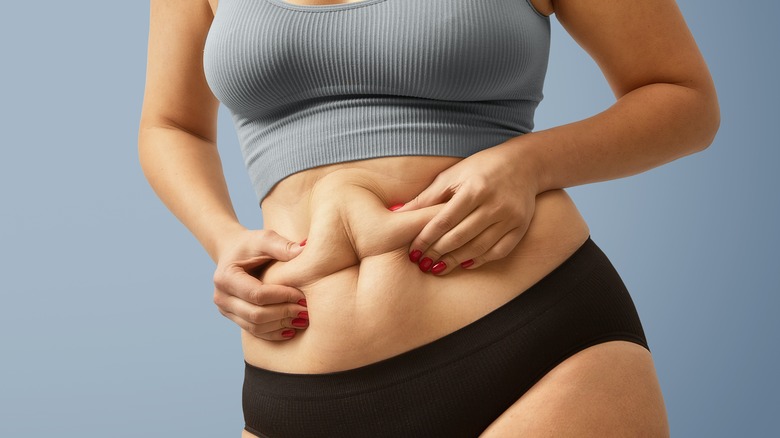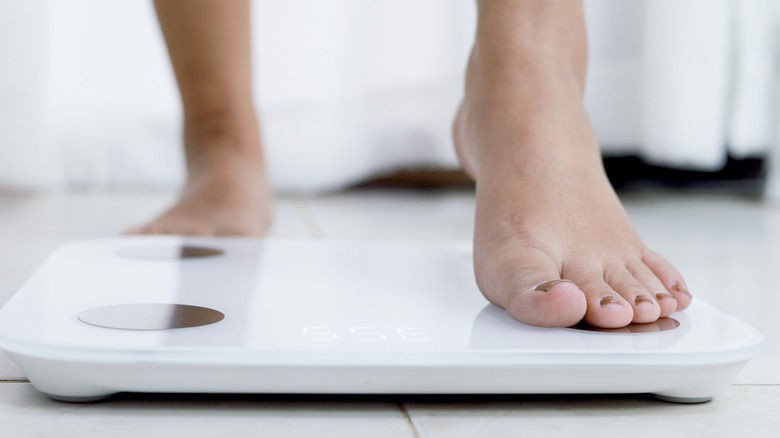What You Need To Know About The Link Between Depression And Weight
Depression affects 1 in 6 people in their lifetime, according to the American Psychiatric Association. People with depression lose interest in things that might have previously brought them enjoyment. Depression is also characterized by feelings of worthlessness, difficulty sleeping and concentrating, and changes in appetite. According to the U.S Centers for Disease Control and Prevention, 43% of people who suffer from depression are also obese.
WebMD says that there's a link between depression and weight gain. People who are depressed might turn to food to tap into their reward system and consequently gain weight. Similarly, gaining weight might cause people to become depressed, and this can create a troublesome cycle by turning to food to make them feel better (via Everyday Health). People with obesity are at a greater risk for depression, and it could lead to physical problems such as joint pain, diabetes, and high blood pressure (via Healthline). Although the change in appetite from depression can also cause people to lose weight, it's more common for people to have depression and weight gain (via Everyday Health).
What the research says about depression and weight gain
Researchers are looking for what might connect depression and weight gain.
A 2019 study in the International Journal of Behavioral Nutrition and Physical Activity found that emotional eating might be one of the mechanisms that link depression and weight gain. The study also noted that people who don't get enough sleep and are emotional eaters are more vulnerable to gaining weight. A 2018 review in Current Diabetes Reports also suggested that emotional eating connects depression and weight gain. People who have difficulty regulating their emotions might turn to food to manage their negative feelings.
According to a 2018 study in Cognitive, Affective & Behavioral Neuroscience, stress, fatigue, and inflammation can also factor into the connection between weight gain and obesity.
Managing your weight might also be excessively difficult if your depression medication can cause weight gain as a side effect. Although Prozac can cause you to lose weight, other antidepressants such as Abilify, Seroquel, Lexapro, and Zoloft can sabotage your weight loss efforts (via PsychCentral).
Treatments for depression-related weight gain
PsychCentral says depression can make weight loss difficult because depression affects your motivation, self-esteem, and energy levels. Because the 2018 review in Current Diabetes Reports found that emotional eaters had poor emotional regulation, the study suggested finding a weight-loss program that focuses more on regulating emotions rather than dieting. According to Everyday Health, your emotional brain also regulates your appetite. If you use food to modify your feelings, find ways to see food differently rather than as a means of feeling better.
WebMD suggests getting physically active can help with your mood. According to a 2020 systematic review published in Mental Health and Physical Activity, children who have childhood obesity improved their self-esteem and body image through exercise. Exercise also reduced their depression.
If you suffer from insomnia, WebMD also suggests finding ways to get better sleep. The Sleep Foundation says that poor sleep might be linked to an increase in appetite, so finding ways to get quality sleep could discourage unhealthy cravings.



